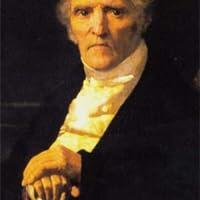
Charles Fourier
O Autorze
Charles Fourier was a French philosopher and social theorist, best known for his ideas about utopian socialism and the restructuring of society based on his theories of cooperation and community living. He proposed a system he called 'Phalanstère,' an organized community that would foster individual passions and cooperation among its members. Fourier's vision was revolutionary for his time, emphasizing the importance of personal freedom and emotional fulfillment as key components of a harmonious society. He believed that through the collective effort of individuals, a more just and equitable society could be achieved, contrasting sharply with the prevailing capitalist structures of his day.
Fourier's writings, including 'The Passions of the Human Soul' and 'The Theory of the Four Movements,' laid the foundation for later socialist movements and influenced a variety of thinkers and activists. Though his ideas were not widely adopted during his lifetime, they gained traction in the 19th century and beyond, impacting the development of later socialist and communal movements. Fourier's unique perspectives on society, gender roles, and economics continue to resonate with contemporary discussions on social reform and justice.